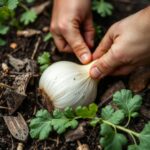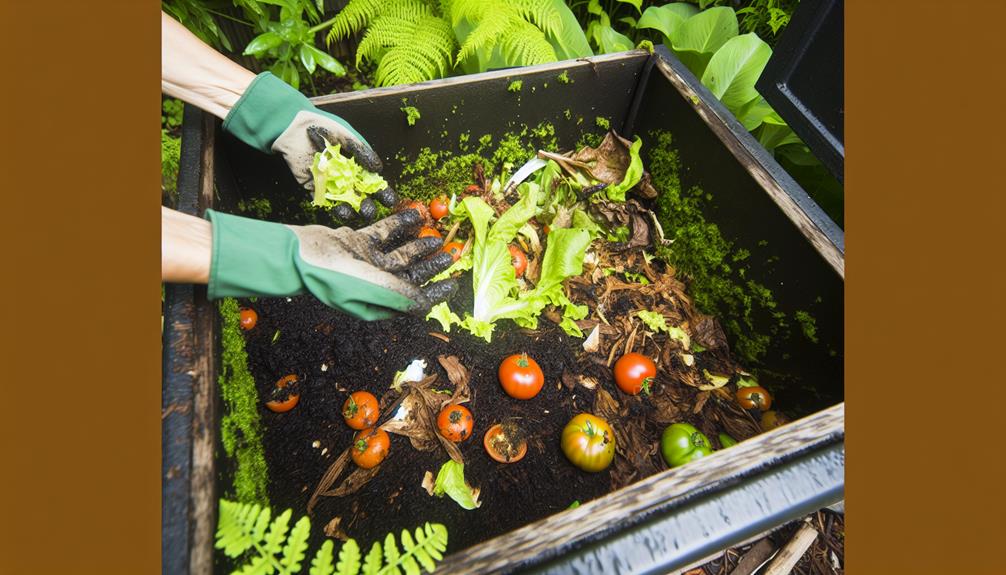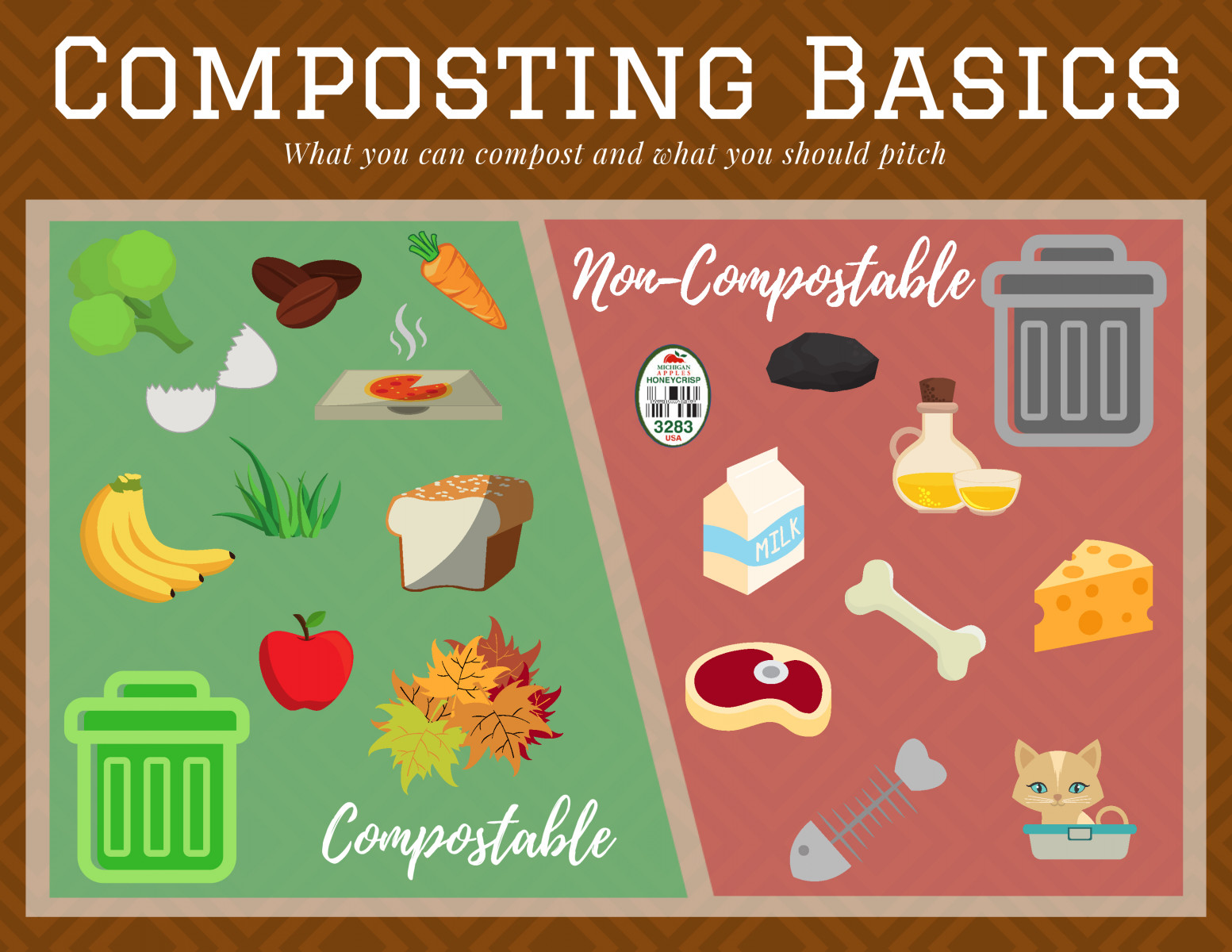Can I Put Rotten Vegetables in Compost? Benefits and Tips for Effective Composting

Composting is an excellent way to reduce waste while enriching your garden soil, but not all organic materials are created equal. One common question among compost enthusiasts is whether rotten vegetables can be added to compost. This article explores the benefits of including decomposed produce in your compost bin, offering valuable insights for effective composting practices. By understanding the role of rotten vegetables in the composting process, you can enhance nutrient content, improve soil structure, and minimize odors. Discover tips for managing your compost pile and learn how to turn kitchen scraps into a sustainable resource for your garden.
Can I Put Rotten Vegetables in Compost?
Yes, you can put rotten vegetables in your compost bin, but there are some important considerations to keep in mind. While decomposing organic matter is beneficial for the composting process, using heavily rotten vegetables can attract pests and create unpleasant odors if not managed properly. It's recommended to balance rotten vegetables with carbon-rich materials such as dry leaves, straw, or shredded paper to maintain a healthy aerobic environment. Moreover, ensuring proper aeration and moisture levels will expedite the decomposition process, turning those rotten veggies into nutrient-rich compost for your garden.
Benefits of Adding Rotten Vegetables to Compost
Adding rotten vegetables to compost can enhance the nutrient content of the finished product. As these vegetables break down, they release essential nutrients such as nitrogen, phosphorous, and potassium, which are vital for plant growth. Moreover, using rotting produce instead of throwing it away reduces waste and contributes to a more sustainable lifestyle by recycling organic matter back into the soil.
Potential Problems with Composting Rotten Vegetables
While composting rotten vegetables can be beneficial, it may lead to certain challenges. If the vegetables are too decomposed, they can produce foul odors and attract unwanted pests like rats or flies. Additionally, if not mixed properly with other materials, the excess moisture from the rotten vegetables can create a sludge that slows down the composting process and may even lead to anaerobic conditions which can harm beneficial microbes.
How to Prepare Rotten Vegetables for Composting
To effectively compost rotten vegetables, it's advisable to chop them into smaller pieces to increase surface area, allowing for quicker decomposition. Moreover, it's beneficial to mix these vegetables with carbon-rich materials such as dried leaves or shredded newspaper to balance out the nitrogen levels and maintain a suitable carbon-to-nitrogen ratio of around 30:1. This will help ensure that the composting process remains efficient and productive.
What Not to Include with Rotten Vegetables
When composting rotten vegetables, it’s crucial to avoid mixing in certain materials that may disrupt the process. Items such as meat, dairy, and oils should be kept out of the compost bin, as they can create odors, attract pests, and lead to contamination. Additionally, avoid including any diseased plants or vegetables that have been treated with pesticides, as these can harm the beneficial microorganisms in your compost.
Comparing Rotten and Fresh Vegetables for Composting
While both rotten and fresh vegetables can be composted, they serve different purposes within the composting system. Fresh vegetables tend to have a higher water content and are more easily broken down, supporting a quicker composting process. In contrast, while rotten vegetables might be more nutrient-dense, they can also pose challenges as previously mentioned. Balancing the two types can create a healthier compost that retains moisture while providing essential nutrients.
| Type of Vegetable | Composting Benefits | Potential Issues |
|---|---|---|
| Fresh Vegetables | High water content & fast decomposition | May attract pests if overused |
| Rotten Vegetables | Nutrient-rich & helps with volume | Foul odors & possible pest attraction |
Can you compost rotten vegetables?

Yes, you can compost rotten vegetables. Composting is a natural process that transforms organic waste into nutrient-rich soil. Rotting vegetables can still be beneficial for your compost pile, as they are still organic materials that can contribute to the overall degradation process. However, there are specific factors to consider when adding rotten vegetables to your compost bin to ensure a healthy composting environment.
Benefits of Composting Rotten Vegetables
Composting rotten vegetables offers several perks for your garden and the environment. Here are some key benefits:
See also:
- Nutrient-Rich Soil: Rotten vegetables break down and provide essential nutrients, such as nitrogen and potassium, to enrich your soil.
- Reducing Waste: Composting helps divert organic waste from landfills, reducing the overall waste burden.
- Improving Soil Structure: The addition of decomposed organic matter improves soil structure, enhancing its ability to retain moisture and nutrients.
What Types of Rotten Vegetables Can Be Composted?
Not all rotten vegetables are equal when it comes to composting. Here’s a list of what you can and cannot include:
- Accepted Items: Soft or mushy vegetables, such as tomatoes and cucumbers, can be composted.
- Limitations: Avoid composting vegetables that have been treated with chemicals or pesticides.
- Mixing with Other Materials: Combine rotten vegetables with carbon-rich materials like leaves or straw to balance the compost.
Potential Issues with Composting Rotten Vegetables
While composting rotten vegetables is generally beneficial, there are some potential issues to be aware of:
- Odor Problems: Decomposing vegetables can produce unpleasant smells if not managed properly.
- Pest Attraction: The strong odor may attract pests such as rodents or insects.
- Balance in the Pile: Too many wet or mushy items can lead to a soggy compost pile, hindering the composting process.
How to Add Rotten Vegetables to Your Compost Pile
To effectively add rotten vegetables to your compost, follow these steps:
- Chop Up the Vegetables: Cut them into smaller pieces to speed up the decomposition process.
- Create Layers: Alternate layers of rotten vegetables with carbon-rich materials to maintain balance.
- Monitor Moisture Levels: Ensure the compost pile is moist but not too wet, adjusting with dry materials as needed.
When to Avoid Composting Rotten Vegetables
There are situations when composting rotten vegetables may not be advisable:
- Fungal or Mold Issues: If the vegetables are heavily infested with mold, it may be better to dispose of them.
- Contaminated Produce: Vegetables with signs of disease or pests may introduce problems in the compost.
- Excessive Moisture: If you already have a wet compost pile, adding more rotten materials may worsen the issue.
Can you compost vegetables that have gone bad?

Yes, you can compost vegetables that have gone bad, but there are some important factors to consider. Composting is a natural process that transforms organic waste into nutrient-rich soil. When vegetables spoil, they typically contain a lot of moisture and nutrients that can be beneficial to the composting process. However, there are guidelines to follow to ensure that the composting process is effective and does not attract pests or create unpleasant odors.
Criteria for Composting Bad Vegetables
When deciding whether to compost bad vegetables, take these criteria into account:
- Stage of Decomposition: If the vegetables are merely wilted or slightly spoiled, they are generally safe to compost.
- Presence of Pests: If the vegetables show signs of insect infestation, it is best to avoid composting them.
- Type of Vegetable: Some vegetables decompose better than others; starchy vegetables may not be ideal.
Benefits of Composting Spoiled Vegetables
Composting spoiled vegetables offers several advantages:
- Nutrient Enrichment: Bad vegetables enrich compost with essential nutrients.
- Reduced Landfill Waste: Composting helps reduce overall waste sent to landfills.
- Soil Improvement: The resulting compost enhances soil structure and fertility, promoting better plant growth.
Best Practices for Composting Bad Vegetables
To maximize benefits, follow these best practices:
- Chop It Up: Cutting vegetables into smaller pieces speeds up decomposition.
- Aerate the Pile: Ensure proper airflow by turning the compost regularly.
- Maintain Balance: Mix green materials (like spoiled vegetables) with brown materials (like dried leaves) to maintain a healthy compost balance.
Potential Issues with Composting Spoiled Vegetables
Composting bad vegetables can lead to certain challenges:
See also:
- Odor Control: Spoiled vegetables may produce strong odors; mixing them with carbon-rich materials can help.
- Pest Attraction: Make sure to cover compost with other materials to deter pests.
- Temperature Maintenance: A hot compost pile can help eliminate pathogens, so monitor the temperature regularly.
Alternatives to Composting Bad Vegetables
If composting seems problematic, consider these alternatives:
- Burying: Burying spoiled vegetables can enrich the soil over time.
- Feeding Animals: Some animals may benefit from spoiled vegetables, if safe for them.
- Municipal Programs: Some areas have organic waste collection programs for composting purposes.
What vegetable should not be composted?

When it comes to composting, not all vegetables are suitable for inclusion in your compost pile. One vegetable that should not be composted is the allium family, which includes onions, garlic, leeks, shallots, and chives. The reason for this is primarily based on how they can negatively affect the composting process and the resulting compost quality.
Impact on Compost Pile
Composting relies on a balanced ecosystem of microorganisms that decompose organic matter. Alliums can introduce compounds that inhibit the growth of certain beneficial bacteria, which can slow down the composting process.
- They may cause an imbalance in the compost temperature.
- This can lead to a longer, less effective decomposition period.
- Resulting compost may have poor nutrient quality.
Potential Pests and Diseases
Another concern with composting alliums is the risk of attracting pests or harboring diseases. When added to your compost, they can increase the likelihood of various issues.
- They might attract unwanted insects.
- Holding potential pathogens that could survive the composting process.
- Compromising the health of plants when the compost is utilized.
Strong Smells and Offenses
Alliums are known for their strong odors, which can result in unpleasant smells in your compost pile. Adding these vegetables can create a highly fragrant environment that may deter you and your neighbors.
- Strong smells may cause issues with local wildlife.
- Aromas can be bothersome during the composting process.
- Some odors can overwhelm other organic materials in the pile.
Better Alternatives for Composting
Instead of composting alliums, consider using other vegetable scraps that break down more easily and contribute positively to your compost.
- Kitchen scraps from vegetables like carrots and potatoes.
- Fruits such as apples and bananas.
- Greens like lettuce and spinach.
Best Practices for Composting
To ensure your composting efforts are effective and efficient, it's important to follow best practices in the selection of materials. This will aid in creating nutrient-rich compost while avoiding problematic ingredients.
- Maintain a balance of green and brown materials.
- Regularly turn the compost to aerate the pile.
- Monitor moisture levels, ensuring they are optimal for decomposition.
Questions from Our Readers
Can I put rotten vegetables in compost?
Yes, you can put rotten vegetables in compost, as they are considered a good source of nitrogen. However, it is important to ensure that the vegetables are not diseased, as this could potentially harm your compost and garden soil.
What types of rotten vegetables should I avoid in compost?
You should avoid adding diseased or moldy vegetables to your compost, as they can introduce pathogens that may affect plants in your garden. Additionally, avoid vegetables that have been treated with pesticides, as these chemicals can persist in the compost.
See also:
How do rotten vegetables benefit compost?
Rotten vegetables contribute essential nutrients to the compost, helping to create a rich organic material. As they decompose, they release nitrogen and other nutrients that are beneficial for plant growth, enhancing the overall quality of the compost.
Can adding too many rotten vegetables harm my compost?
Yes, adding too many rotten vegetables can lead to an imbalance in your compost, making it too wet and potentially causing unpleasant odors. It's important to maintain a balanced mix of green and brown materials to ensure proper aeration and decomposition.

If you want to read more articles like Can I Put Rotten Vegetables in Compost? Benefits and Tips for Effective Composting, we recommend you check out our Compost category.
Leave a Reply
Related Articles